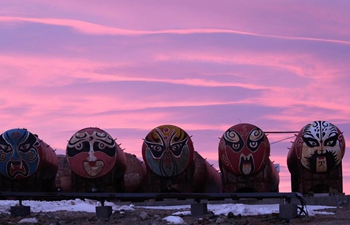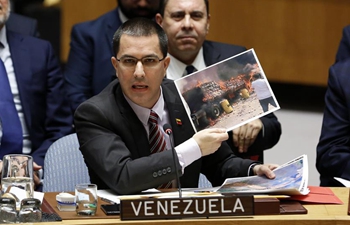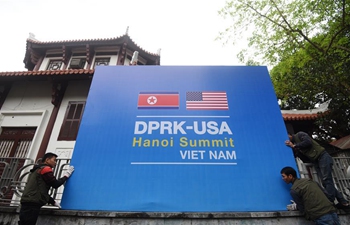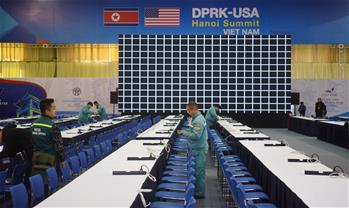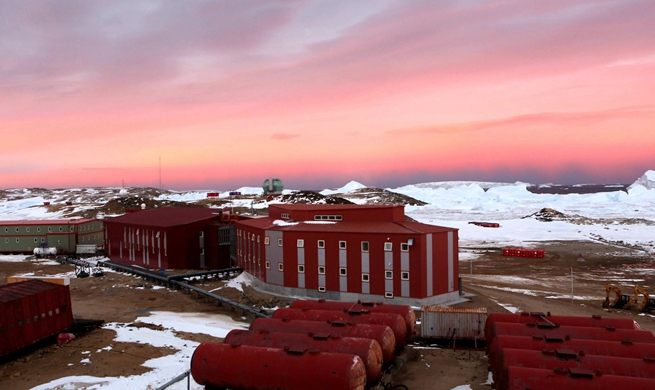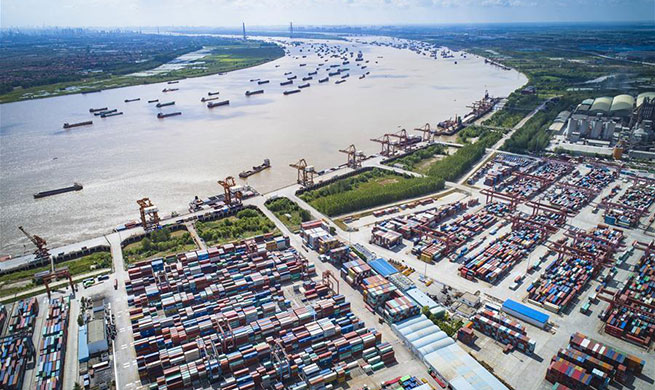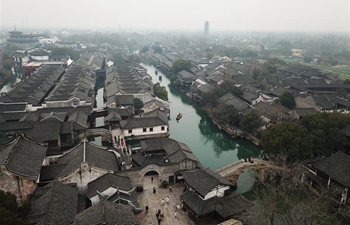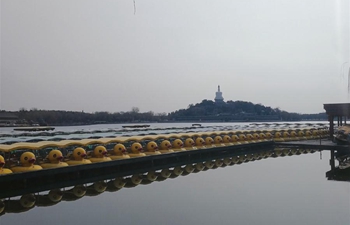HELSINKI, Feb. 27 (Xinhua) -- A high level conference of the Council of Europe (COE) on Wednesday underlined the need for supervisory mechanisms and oversight structures concerning Artificial Intelligence (AI).
In its conclusion statement, the conference in Helsinki, Finland, expressed the view that the design and development of AI tools must be subject to risk assessment in line with applicable principles.
The conference titled "Governing the Game Changer", emphasized the possible changes that AI would bring to human society. At the end of the conference, it was stated jokingly that the document of final conclusions would be sent also to the attention of AI although the address remained unknown.
In its conclusions, the conference demanded that all automated processes should be scrutinizable by a human reviewer. "Algorithmic transparency is crucial for building trust and ensuring due rights protection. Equality before the law should not be compromised by algorithmic calculation."
In the debate preceding the passing of the conclusions, questions were raised on who to carry out such risk assessment, but the response was that the idea had not been discussed sufficiently for such detail.
The conference acknowledged that AI holds significant potential for economic growth and innovation. It noted that these possibilities are essentially rooted in the shared values of democratic societies and cannot be realized without respecting those values.
The conference demanded that effective remedies must be in place in all cases where human rights violations are alleged.
The conference concluded that "existing international instruments" remain applicable irrespective of contextual changes brought about by AI. The conference mentioned as such the Universal Declaration of Human Rights and the European Convention for the Protection of Human Rights and Fundamental Freedoms. Ethical guidelines and self-regulation are additional tools.
The Council of Europe should monitor the impact of AI on the collective foundations of democratic societies. It should identify possible gaps in applying and enforcing existing regulatory frameworks, the conclusions noted.
AI'S LIABILITY STUDIED
In an earlier discussion on Wednesday, Tiina Astola, Director General at the EU Commission Directorate-General for Justice and Consumers, said there are currently two groups in the EU studying product liability in AI.
"There is applicable legislation from the 1980s, but it is probably not enough. One solution might be strict liability for various actors". Astola recalled that there used to be such strict liability for trains long ago.
Astola noted that a global legal solution would be perfect, if it would meet the standards. She gave the recent European data protection regulation as an example of going from regional to global.
"It was criticized for being very tough by people inside and outside Europe, but we see that it is setting the standard. A real international convention treaty could take much more time and could be more difficult to reach."
Explaining how the Council of Europe would take the theme further, Jan Kleijessen, Director in Action against Crime Directorate of the Council of Europe, told the participants the Council would carefully check what regulations exist and where the gaps are.
The Council will continue developing specific recommendations, and will look at the possibility of creating legal instruments covering AI.
It also plans to thematize AI in all its operational sectors. "We will do all this in a transnational and multi-stakeholder way, as in this conference," Kleijessen said.
In his closing remarks, Pekka Puustinen, under-secretary of state at the Foreign Ministry of Finland, said the Helsinki conference has "set a benchmark for future steps". The results of the meeting also pave the way for the Council of Europe reform discussions, due to take place in May in Helsinki.
Reviewing the position of AI in international organizations, he noted that in Council of Europe the focus is on the rule of law, democracy and human rights, while in UNESCO the theme is ethics. "We need all these approaches," he said.
Established in 1949, the Council of Europe is an organization that covers today 47 countries. Its primary role is to promote democracy, human rights and the rule of law. It is not part of the EU. The Council was the original user of the "Star Flag", which was later adopted by the European Union.
